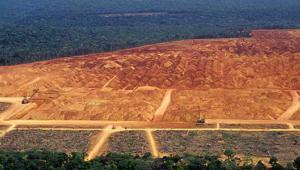The Latin American country is now in its worst recession for three decades after a commodities-fuelled boom that lifted tens of millions of Brazilians out of poverty and into a ‘new middle class’.
But the OECD said that if Brazil counters its fiscal challenges with the necessary adjustments to strengthen public finances, restore market confidence and prepare for an ageing population it could put its economy back on track.
OECD secretary-general Ángel Gurría said: “Progress must continue on the fiscal and monetary fronts. Ambitious structural reforms are urgently needed to close the productivity gaps with other leading emerging economies while ensuring all Brazilians can share the fruits of prosperity.”
Two reports, published by the OECD and presented by Gurría at meetings with Brazil’s finance minister Joaquim Levy and environment minister Izabella Teixeira in Brasilia today, explain the challenges faced and action needed to turn things around.
The first, the Economic Survey of Brazil, said high inflation and falling commodity prices are putting pressure on the economy, which is expected to contract by 3.1% this year and by a further 2.1% in 2016.
Brazil will need to rein in the expansion of its public expenditure by making public spending more effective, reforming the pension system and improving the targeting of social benefits to deliver more spending on the poor and less on those who have successfully joined the middle class, it said.
Increased productivity will also be essential to Brazil’s future economic growth, which can be achieved by reforms to the fragmented indirect tax system, better infrastructure and increased competition and stronger integration into international trade.
The second report, marking the OECD’s first ever Environmental Performance Review of Brazil, said that, while progress has been made in reducing deforestation and greenhouse gas emissions over the past 15 years, rapid urbanisation and economic growth have increased pressure on the environment.
The country suffers from severe water shortages in the south east, soil contamination from inadequate waste water treatment, rising air pollution and regional disparities in access to clean water.
Gurría said: “Brazil has made tremendous progress in terms of its environmental performance, but rigorous policy implementation remains critically important.”
The OECD review recommends that Brazil do more to integrate environmental and economic policies to ensure the sustainable use of resources.
It also suggests Brazil adjust energy taxes to reflect the carbon content of fuels as well as the introduction of taxes on pollution, waste, and use of natural resources.













